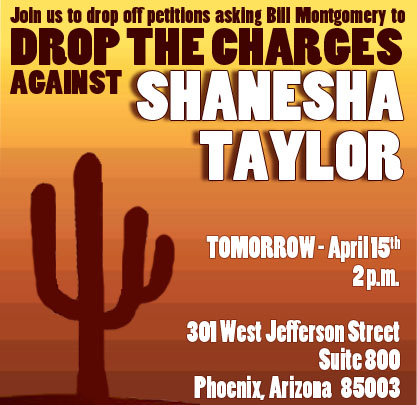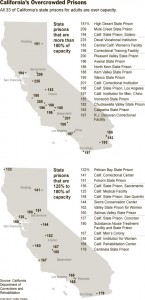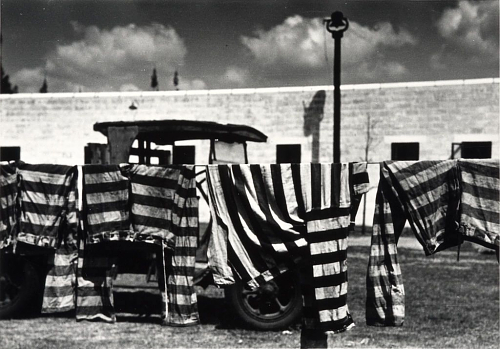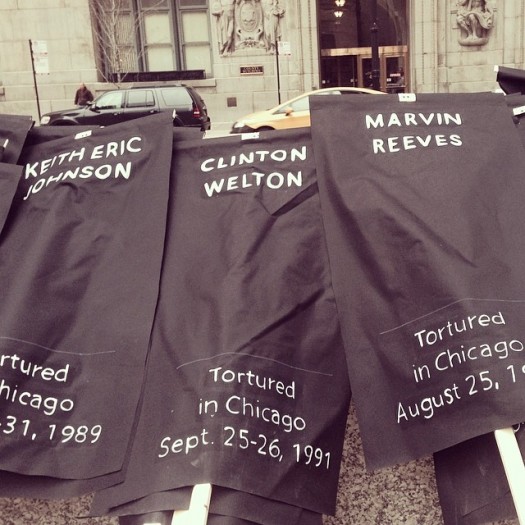On Friday, Monica Jones was found guilty of “manifestation of prostitution.” I was unsurprised and upset. Unsurprised because the criminal punishment system is inherently racist, sexist, heterosexist, transphobic, classist, ableist, & so on. Upset because I hate injustice. Jones is part of a long line of black women who have been unjustly targeted by the state. She vows to fight on and so should we all.
Black women in the U.S. have been excluded from definitions of ‘respectable’ and/or ‘proper’ womanhood, sexuality, & beauty. This matters when one considers how we’re treated within society as a result. Black women have also been constructed as always ‘publicly available.’ Think of how this played out for Monica Jones as a trans black woman (though repeatedly misgendered by authorities) and for other black women. If we are always ‘publicly available,’ then charging us with manifestation of prostitution is more likely. These ideological constructs have their roots in justifying slavery and our general subjugation. They are doing particular work and we see this work clearly ‘manifested’ in the historical criminalization of black women. Unfortunately, there have been few studies about the history of black women’s punishment and criminalization. Notable exceptions include work by Kali Gross and Ann Butler. So when I come across interesting stories about crime and punishment in Black women’s history, I try to document them.
In 1951, a black woman named Elizabeth (Lizzy) Williams escaped from an Alabama prison farm. She had served nine long years of a 218 year prison sentence. What could Ms. Williams have done to deserve 218 years behind bars? She was convicted by three all-white juries of lying to protect her boyfriend from a robbery charge for stealing chickens. Officially, she was convicted of one count each of unarmed robbery by three different Alabama juries (even though there was no evidence that she had participated in any robberies).
In 1942, Lizzy, the mother of a young daughter, was dating a man named Turner Washington. He came home one night and told her that he had stolen some chickens. As Lizzy recalled: “He said if you don’t tell them I was with you, they’re gonna burn me.” So she lied for him to law enforcement.
When asked about her trials, Lizzy, who quit school in the third grade, couldn’t recall them. She explained: “They was the judge and two or three men on the right of me…They talked between themselves and then they told me how much time they was giving me (Atlanta Daily World, 4/16/78).” No attorney represented her. Lizzy Williams didn’t stand a chance of a ‘fair trial’ in 1940s Alabama where black people were routinely sentenced to long prison terms for minor crimes.
After being forbidden from holding prayer services in prison, Lizzy fled to Detroit where she lived with family for the next 27 years. As a fugitive, she made a living as a maid, a seamstress, and by leading church revivals. She lived in poverty afraid to apply for any benefits in case she would be discovered. She recounted having to eat bug-infested food while incarcerated.
At 60 years old, Williams was arrested by local police after her sister informed them of her whereabouts. Lizzy and her sister Annie had argued so Annie alerted law enforcement of her outstanding warrant. Lizzy was jailed for eight days in January 1978. In March, officials in Alabama asked that she be extradited to serve the remaining 209 years of her sentence.
After an outpouring of community outrage, Michigan governor William Milliken refused to extradite Lizzy Williams stating that: “The ends of justice would not be served” by sending her back to Alabama.
It’s inconceivable to me that a white woman in Alabama would have been subjected to such racist treatment in the criminal legal system. Lizzy Williams, however, would not have had access to ‘proper’ womanhood as a buffer from harsh treatment. This, in part, explains how she could be sentenced to 218 years in prison for lying about some chickens.
I’ll be part of a discussion about the contemporary criminalization of black women and girls sponsored by the Black Youth Project this Wednesday at 6 p.m. Details are here and all are welcome.





